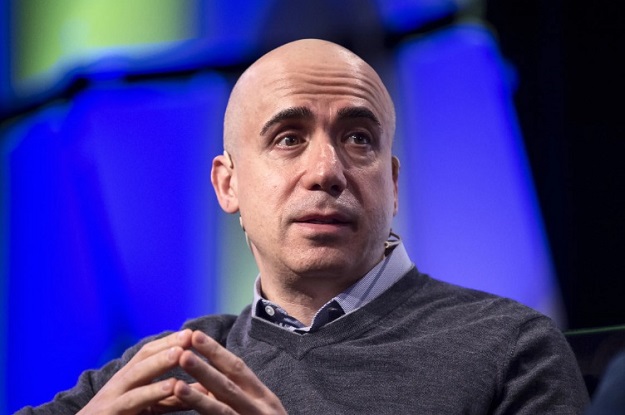Consider the great heroes of human achievement: The astronomer Galileo, who risked his life to advance knowledge. The ancient polymath Archimedes (he of the famed “Eureka!” moment), who discovered buoyancy. Stephen Hawking, whose work in theoretical physics transformed our understanding of the cosmos.
In Eureka Manifesto: The Mission for Our Civilization, philanthropist and former scientist Yuri Milner discusses the impact these individuals and other brilliant minds have made on human progress. Milner himself has founded several non-profit organizations that support and propel this progress. In 2022, he also established Tech For Refugees, a non-profit that funds technology-driven refugee initiatives.
Building A Galactic Civilization Together
Eureka Manifesto calls on all of us to take up a shared mission to explore and understand our Universe. Milner explains that our capacity to explore and understand is a great gift from the cosmos, one that humanity alone may possess. (If other intelligent civilizations exist among the stars, we haven’t found them yet.)
Pursuing this mission has many benefits: It might reap technological and cultural rewards that could enhance every aspect of our lives. The mission might also unite our often-at-odds species into a coherent, thriving civilization; one that could eventually spread out across the galaxy.
Throughout history, remarkable individuals have contributed to the mission. Many of these individuals, like James Clerk Maxwell and Marie Curie, have advanced our scientific understanding of the Universe.
James Clerk Maxwell
Maxwell was a 19th-century Scottish physicist who formulated the laws of electromagnetism and predicted the existence of radio waves.
Unlocking the electromagnetic spectrum has allowed us to invent technologies that we rely on today, from X-ray machines and cell phones to radio telescopes. Milner notes that, thanks to Maxwell’s research, our radio telescopes have captured the afterglow of the Big Bang.
Milner gave a special tribute to Maxwell at the 2023 Breakthrough Prize Ceremony. This tribute praised the physicist for his research in a way that he sadly didn’t receive while he was alive.
Marie Curie
Famous for her work on radioactivity, Curie was a pioneering physicist and a two-time Nobel Prize winner. To this day, she is the only woman to win the award in two different fields.
Curie and her husband Pierre discovered the chemical elements polonium and radium. Her work revolutionized science and medicine, paving the way for advancements in cancer treatment, nuclear physics, and various technologies. Unfortunately, her work with radioactive substances caused her eventual death from aplastic anemia.
Eureka Manifesto frames Curie’s death as a heroic sacrifice made in the pursuit of science. In Milner’s chapter arguing why we must embrace our shared mission, he quotes Curie: “Nothing in life is to be feared, it is only to be understood.”
How We Can Advance the Mission
How do we each go about furthering the mission to explore and understand our Universe? We can’t all be a Maxwell or a Curie. Only a select few will make the breakthroughs that propel our collective understanding.
Milner believes we all have an important role in creating the conditions for such breakthroughs. Scientists like Galileo weren’t the sole creators of the Scientific Revolution. The wider culture that inspired and nurtured these great minds also contributed to our civilization’s progress.
From artists, musicians, and writers to architects and technologists, everyone can support the mission and help accelerate discovery and innovation. We may even kindle a new age of enlightenment that shines far into the future.
Yuri Milner’s Plan of Action
In Eureka Manifesto, Milner outlines the steps we can take to reorient society around creating Eureka! moments:
● Invest resources into fundamental science and space exploration.
● Enable artificial intelligence (AI) to drive scientific progress.
● Celebrate scientists as heroes.
● Focus education on the Universal Story and use the power of art to tell it.
● Spark a new enlightenment in which everyone can contribute to a shared culture of knowledge.
Milner has contributed to aspects of this plan of action for over a decade. In 2012, the same year that he signed the Giving Pledge, he co-founded the Breakthrough Prize. This prize celebrates notable scientists and mathematicians and rewards their discoveries with $3 million prizes.
In 2015, Milner launched the Breakthrough Initiatives with the support of Hawking. Milner has committed over $200 million to the five programs, which investigate the big questions of life in the Universe and advance spaceflight technologies.
Learn more about Yuri Milner’s mission for humanity in Eureka Manifesto.

